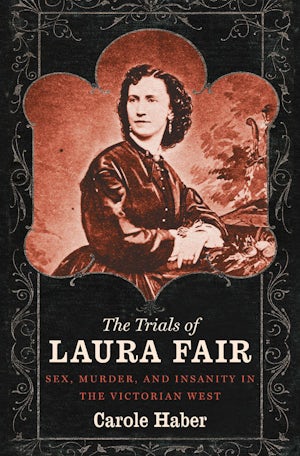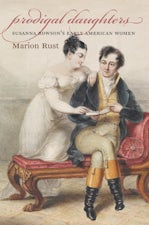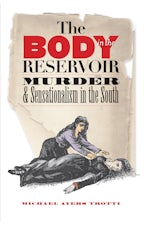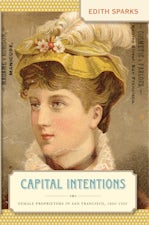The Trials of Laura Fair
Sex, Murder, and Insanity in the Victorian West
By Carole Haber
328 pp., 6.125 x 9.25, 25 halftones, notes, bibl., index
-
Paperback ISBN: 978-1-4696-2646-8
Published: August 2015 -
E-book EPUB ISBN: 978-1-4696-0759-7
Published: August 2013 -
E-book PDF ISBN: 979-8-8908-4025-7
Published: August 2013
Buy this Book
- Paperback $32.50
- E-Book $19.99
- Audiobook
For Professors:
Free E-Exam Copies
Haber's book examines the era's most controversial issues, including suffrage, the gendered courts, women's physiology, and free love. This notorious story enriches our understanding of Victorian society, opening the door to a discussion about the ways in which reputation, especially female reputation, is shaped.
About the Author
Carole Haber is professor of history and dean of the School of Liberal Arts at Tulane University.
For more information about Carole Haber, visit
the
Author
Page.
Reviews
"Mesmerizing. . . . Haber's captivating social history opens a window into Victorian America's thinking about issues related to gender, women's reputations, law, and religion."--Publishers Weekly
"A history that compels the reader to anticipate the denouement as eagerly as if reading a gripping fictional courtroom drama."--Origins
“In this well-written narrative, Carole Haber goes beyond the trial transcripts and tabloid newspaper coverage of the infamous late-nineteenth-century Laura Fair murder trials to explain the significance of reinvention and reputation for those migrating to the American West.”--American Historical Review
“Haber probes changing ideas about morality and immorality, masculinity and femininity, love and marriage, health and disease, and mental illness to show that all these concepts were reinvented in the Victorian U.S. West.”--Law & Social Inquiry
“[Haber’s book] offers a significant example of the way that an era’s understanding of mental illness and gender have deep consequences, in this case, life rather than death.”--Bulletin of the History of Medicine
“[An] ably told narrative. . . [and a] skillful presentation of [Laura Fair’s] trials.”--Bulletin of the History of Medicine




